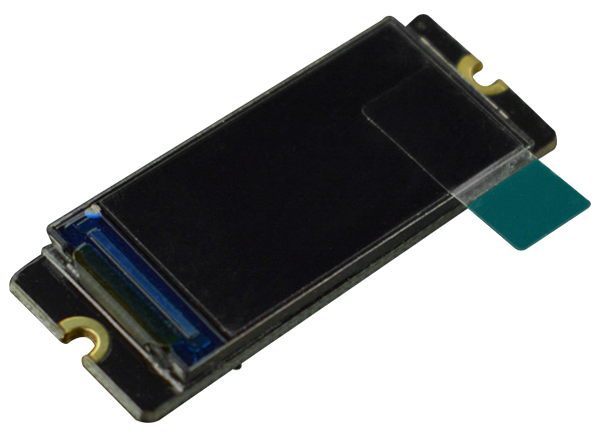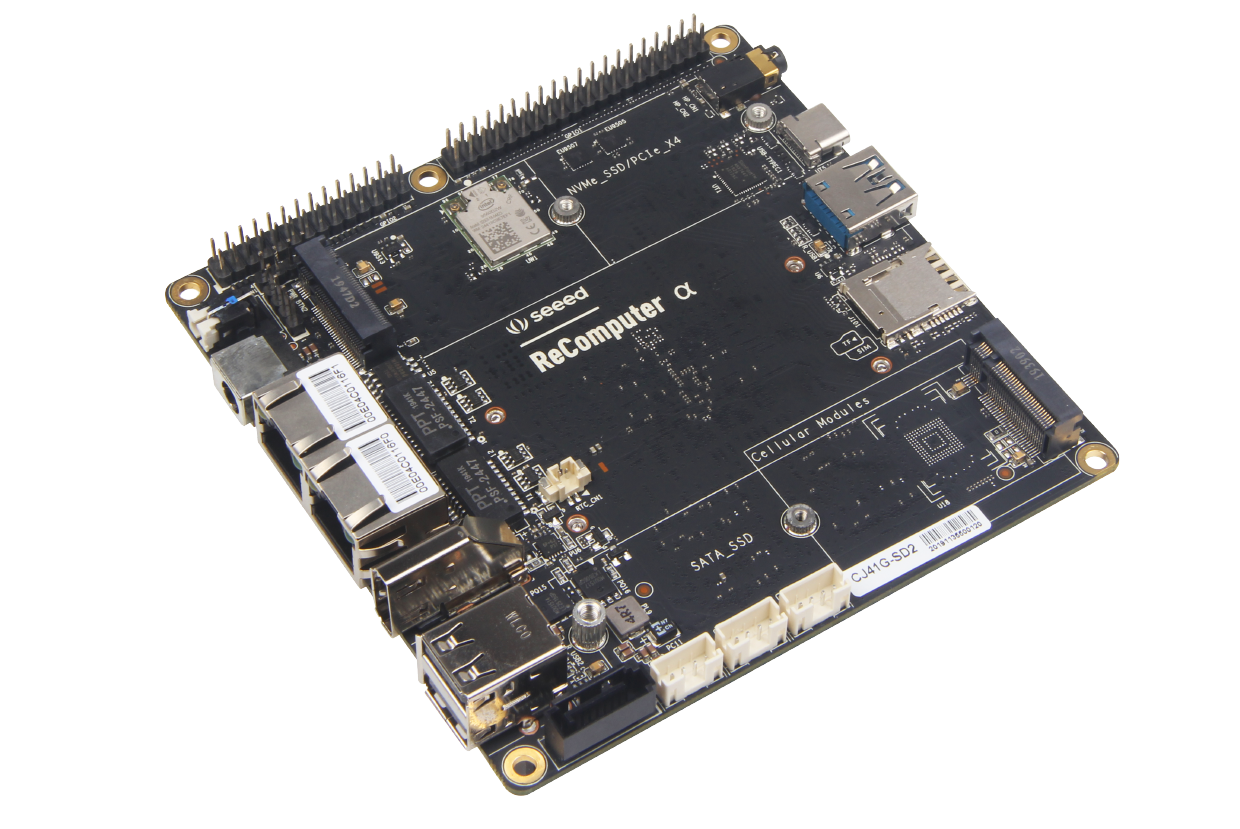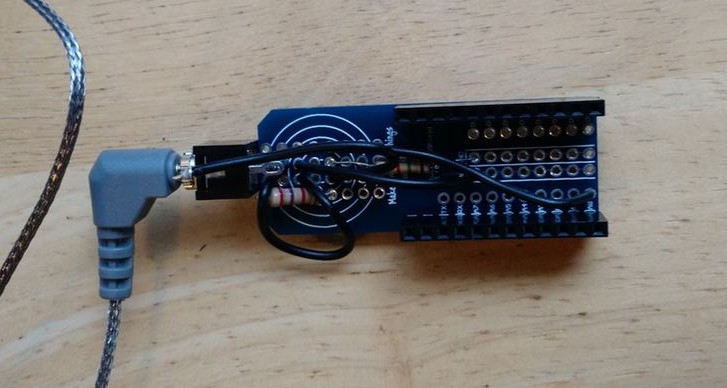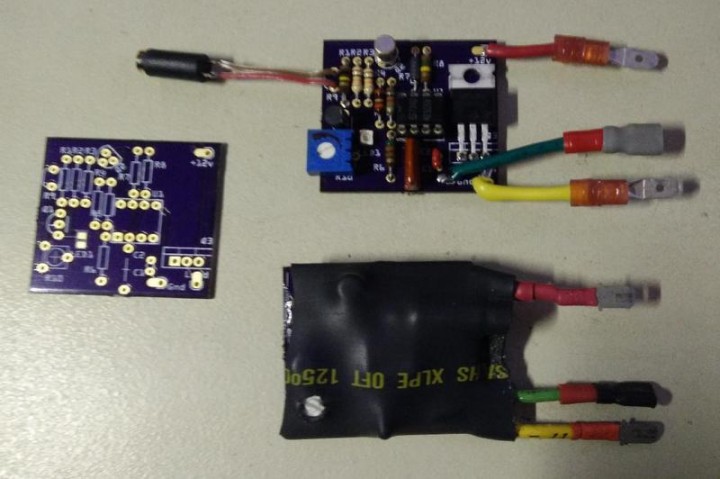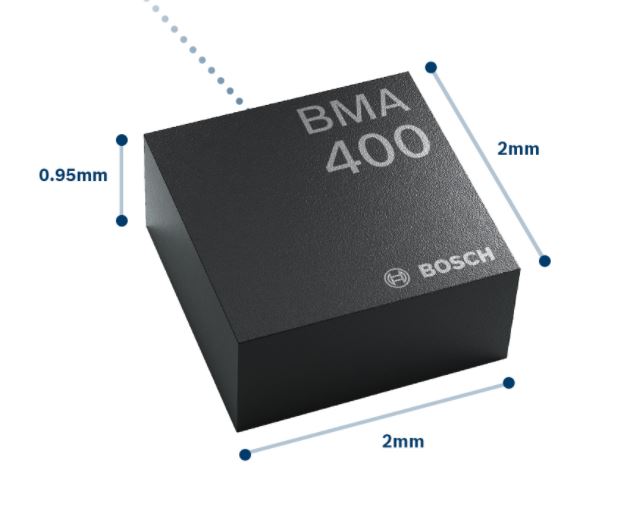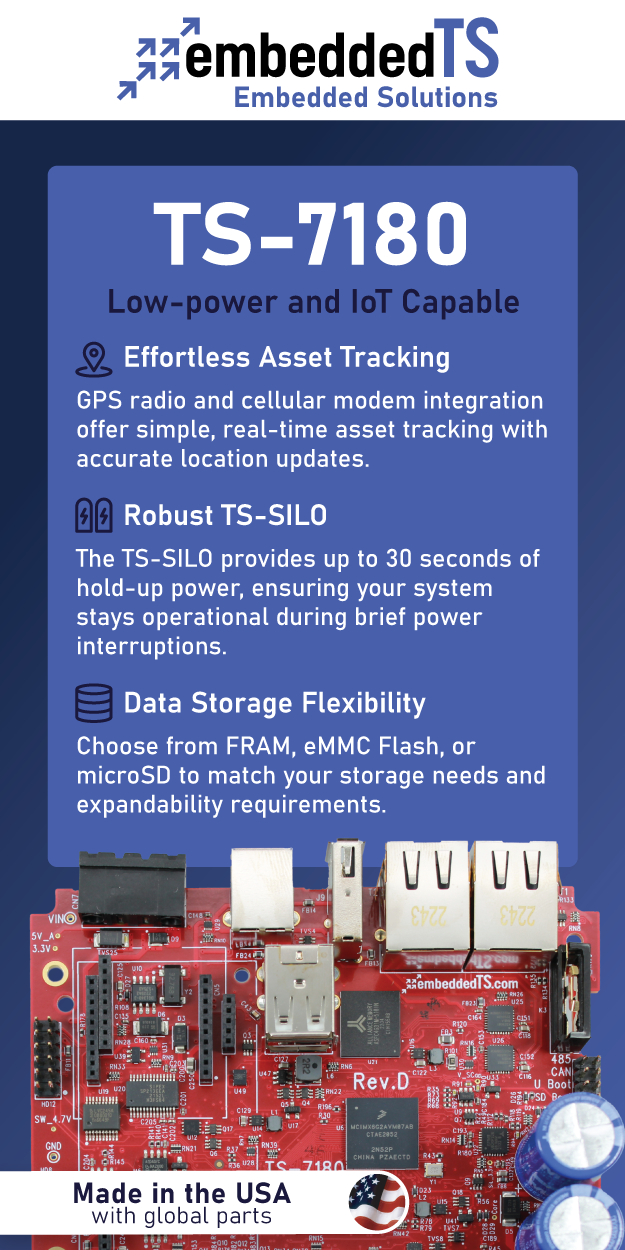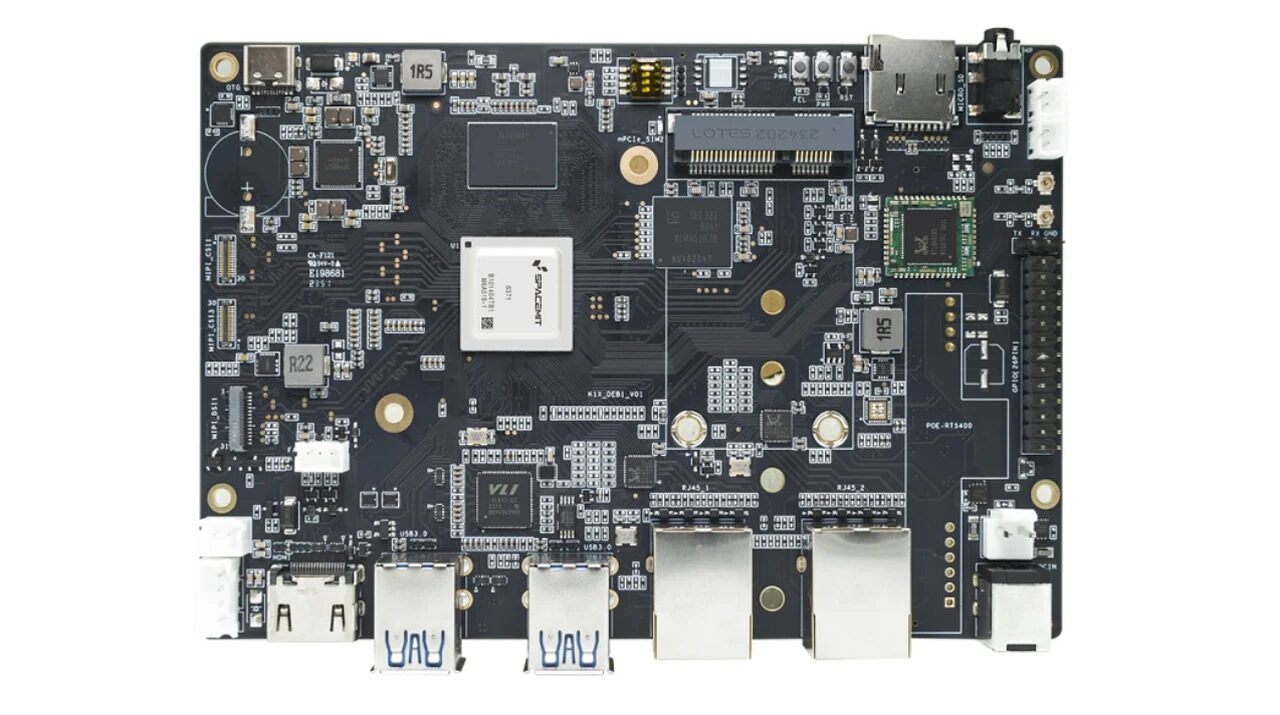

If you are searching for a powerful RISC-V mini PC, the Banana Pi BPI-F3 is an octa-core RISC-V single-board computer (SBC) designed for developers and enthusiasts looking to explore the potential of RISC-V architecture. Powered by the Keystone K1 system-on-chip (SoC) from Space MIT, this SBC offers a robust platform for development and experimentation. Explaining Computers demonstrates the BPI-F3 running on Bianbu OS, a Debian-based distribution optimized for RISC-V processors, providing a stable and familiar environment for developers with a smooth GPU-accelerated desktop experience suitable for various development tasks.
At the heart of the Banana Pi BPI-F3 lies the Keystone K1 SoC, featuring eight 64-bit X60 RISC-V cores. This powerful processor excels in handling complex computations and multitasking, making it suitable for a wide range of development tasks. The board also includes the IMG BXE-232 GPU, which supports OpenCL 3.0, OpenGL ES 3.2, and Vulkan 1.2, providing robust graphics processing capabilities for development and media playback. It comes with 4GB of 32-bit LPDDR4 RAM, offering ample memory for most development needs, though a 2GB variant is available for less demanding applications. Storage options are flexible and expandable, with 16GB eMMC flash storage, a microSD card slot, and an M.2 slot for NVMe SSD.
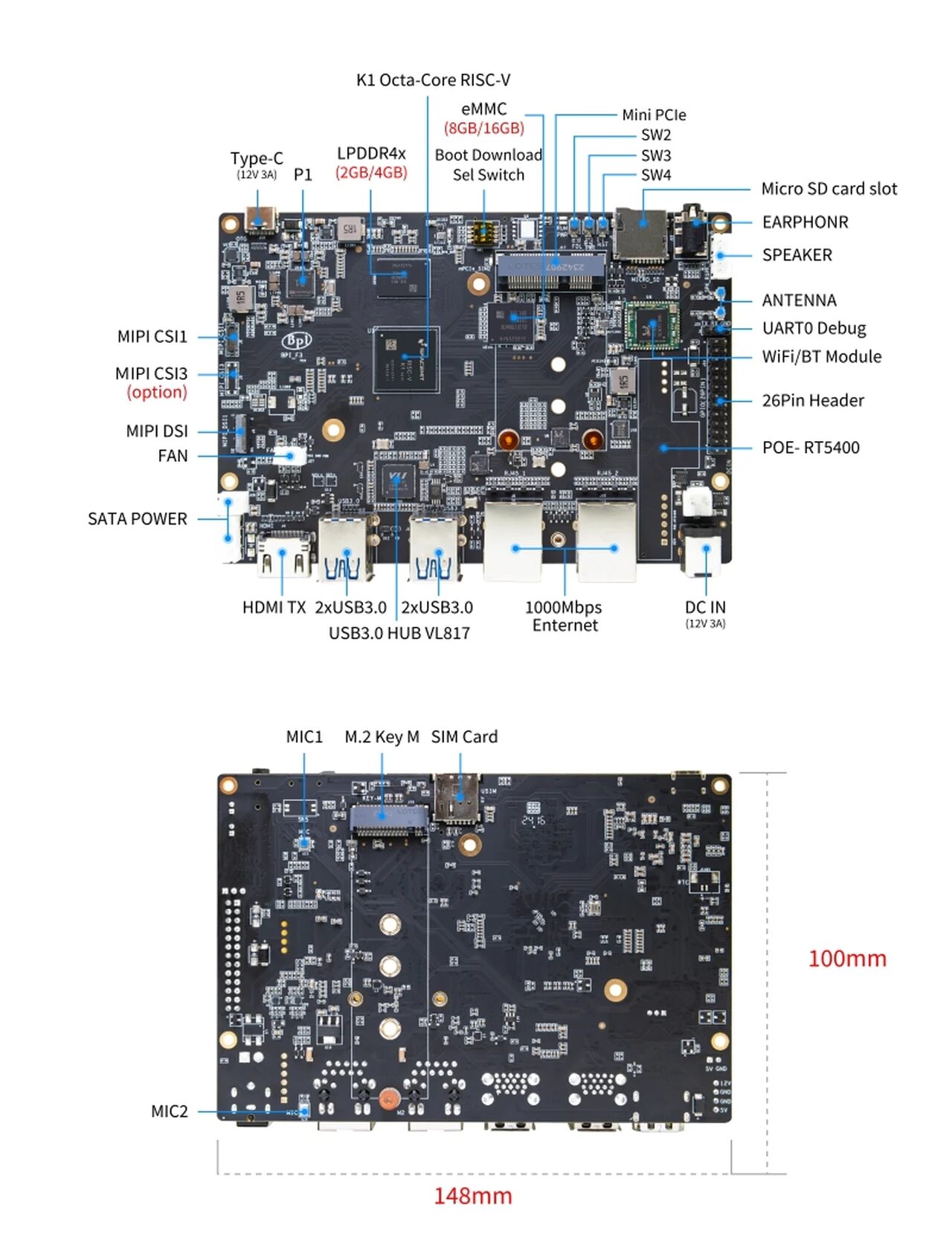
Connectivity is a key feature of the Banana Pi BPI-F3, offering a comprehensive set of interfaces and ports, including a mini PCIe connector for additional expansion, Wi-Fi 6 and Bluetooth 5.2 for wireless connectivity, an HDMI port for video output, USB 3.0 ports for high-speed data transfer, and Gigabit Ethernet for wired networking. Various headers are available for connecting additional peripherals, making it ideal for experimentation and development. The initial setup process is straightforward, with a user-friendly first-run wizard guiding you through the necessary steps. The board comes with a comprehensive suite of pre-installed applications, including LibreOffice for productivity, Chromium for web browsing, Thunderbird for email, and various utilities, providing a well-rounded software package out of the box.
The Banana Pi BPI-F3 is primarily designed for developers working on RISC-V architecture, offering a platform for experimentation and development. While not intended for consumer use, it serves as an ideal tool for software and hardware experimentation, testing, and prototyping. As RISC-V technology continues to evolve, the Banana Pi BPI-F3 positions itself as a valuable resource for early adopters and developers. With the potential for consumer-grade RISC-V products in the future, this board provides a foundation for exploring the capabilities and possibilities of this emerging architecture.
Specifications:
- Processor:
- Keystone K1 SoC with eight 64-bit X60 RISC-V cores
- Graphics:
- IMG BXE-232 GPU
- OpenCL 3.0
- OpenGL ES 3.2
- Vulkan 1.2
- Memory:
- 4GB of 32-bit LPDDR4 RAM (2GB variant available)
- Storage:
- 16GB eMMC flash storage
- microSD card slot
- M.2 slot for NVMe SSD
- Connectivity:
- Mini PCIe connector
- Wi-Fi 6 and Bluetooth 5.2
- HDMI port
- USB 3.0 ports
- Gigabit Ethernet
- Additional Features:
- Multiple power input options (barrel jack, 2-pin header, USB-C)
- Camera interfaces
- SATA power and fan connectors
- AI computing power instructions.
The Banana Pi BPI-F3 offers a range of additional features that enhance its versatility and usability, including multiple power input options (barrel jack, 2-pin header, and USB-C), headers for camera interfaces, SATA power, and fan connectors for extensive peripheral support, and extended instructions for AI computing power, making it suitable for AI development and experimentation. Testing and benchmarks have demonstrated the board’s capabilities in various aspects. Storage speeds for microSD card, eMMC, and NVMe SSD have been tested, showing efficient handling of different storage solutions. The board is capable of smooth 1080p video playback and local 4K video decoding, making it suitable for media-rich applications. AI object detection using a USB webcam has also been demonstrated, showcasing satisfactory performance and potential for AI development.
In conclusion, the Banana Pi presents a robust and feature-rich platform for developers and enthusiasts interested in exploring the potential of RISC-V technology. With its powerful hardware, optimized software, and extensive connectivity options, this SBC offers a stable and versatile environment for various development tasks, experimentation, and future innovation in the RISC-V ecosystem.






